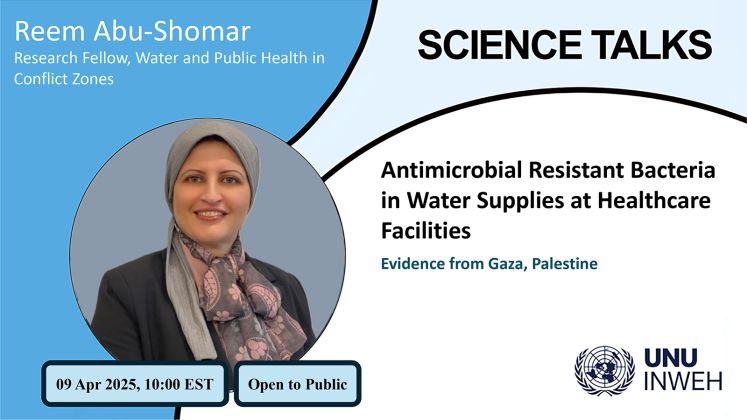Antimicrobial resistance (AMR) is a pressing global issue, yet the role of water safety in its spread remains poorly understood, particularly in healthcare facilities within conflict-affected regions. In humanitarian settings, compromised Water, Sanitation, and Hygiene (WASH) infrastructure, coupled with limited awareness among health workers, poses significant challenges to infection prevention and control. In this Science Talk, Dr. Abu Shomar highlights the presence of AMR bacteria in desalinated and municipal water supplies at healthcare facilities in Gaza, Palestine, while also assessing health workers’ knowledge and perceptions of WASH and AMR.
The findings reveal widespread bacterial contamination in water supplies, including resistant strains of coliforms, Pseudomonas spp., and Staphylococcus aureus, with notable resistance to key antibiotics. The presence of AMR genes further underscores the risks associated with unsafe water in clinical settings. Despite the critical role of WASH in mitigating AMR transmission, a significant knowledge gap exists among health workers, with limited confidence in water safety and inadequate monitoring mechanisms in place.
These findings highlight the urgent need to strengthen WASH infrastructure, enhance water safety monitoring, and integrate WASH and AMR awareness into healthcare training programs.
Speaker

Reem Abu-Shomar
Research Fellow, Water and Public Health in Conflict Zones



